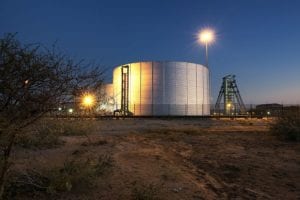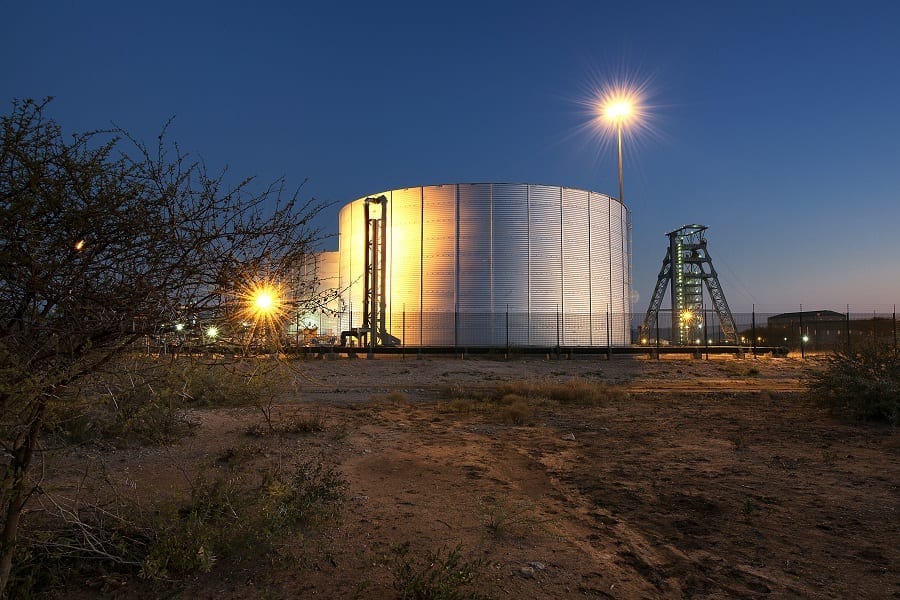MG: We are very busy at the moment with quite a number of public sector projects on the go. One of these is the large KwaBhaca regional bulk water scheme, under the Alfred Nzo District Municipality, where we are installing four 2.5 Mℓ tanks, with more to follow. This will go a long way towards alleviating water delivery shortages in the area. We have also received an order for 16 tanks from the Joe Gqabi District Municipality in the Eastern Cape where we have been appointed as the main contractor on a project.
Do these projects lend themselves to labour-intensive construction? MG: Yes and no. Building tanks goes hand in hand with building pipelines and local communities benefit from the jobs created in digging trenches for the reticulation system. However, the build process of the tanks requires specialised skills. For a 2.5 Mℓ tank, we would send three of our own specialists and employ six or seven local labourers. How does using an SBS tank save municipalities money? MG: Due to the fluctuating price of materials and an extended works programme when constructing concrete reservoirs, meeting a budget set during the planning phase is frequently highly challenging, if not nearly impossible. With SBS Tanks, you can get a quote that is valid for a pre-agreed-upon period with a small allowance (10% to 20%) while you complete your planning. The speed of construction is also a huge factor – we talk of days as opposed to the months it takes with concrete. Smaller tanks can be delivered and installed within three days, and bigger ones within 20 days. For example, a 2 Mℓ SBS unit takes around 12 days to commission. With concrete, the same capacity structure could take up to eight months. This means municipalities can significantly fast-track service delivery. Another issue is that some unscrupulous contractors charge municipalities excessive amounts for an SBS product. With an SBS unit coming in at a fraction of the cost of building a concrete reservoir, some contractors will try to charge the client more for an SBS unit because he feels he has saved money. If the municipalities deal directly with SBS,they can cut their costs significantly. How can SBS help in terms of South Africa’s water security? MG: SBS can really play a major role in this space. Given the fact that we are currently experiencing water shortages,
most companies should be looking at ways to harvest rainwater to flush toilets and irrigate gardens, or to purify it for potable purposes. Our tanks offer the ideal solution. Many municipalities are preaching rainwater harvesting, but are not practising it themselves. We will soon be launching a campaign that will challenge our clients to lead by example and harvest rainwater not only for their own use, but for that of poor communities too. We have taken the lead in this regard and have installed a fully fledged rainwater harvesting system. This means that our water demand for the factory and offices is sourced from rainwater. We want everyone to become a champion for this cause. How does SBS strive to make a difference for local communities? MG: Water is life. When you visit a village where there is no potable water system and children are forced to collect water from a stream, you really feel their pain. It fills us with pride to see a community able to open a tap fed by an SBS tank. We believe that the little we put in to those communities with a shining SBS tank goes a long way in making a difference in the lives of the South Africans who need it most. SBS invested approximately R700 000 during 2016 for two social responsibility projects in the Free State towns of Lindley and Petrus Steyn, and we will continue to work on similar projects in the future.








